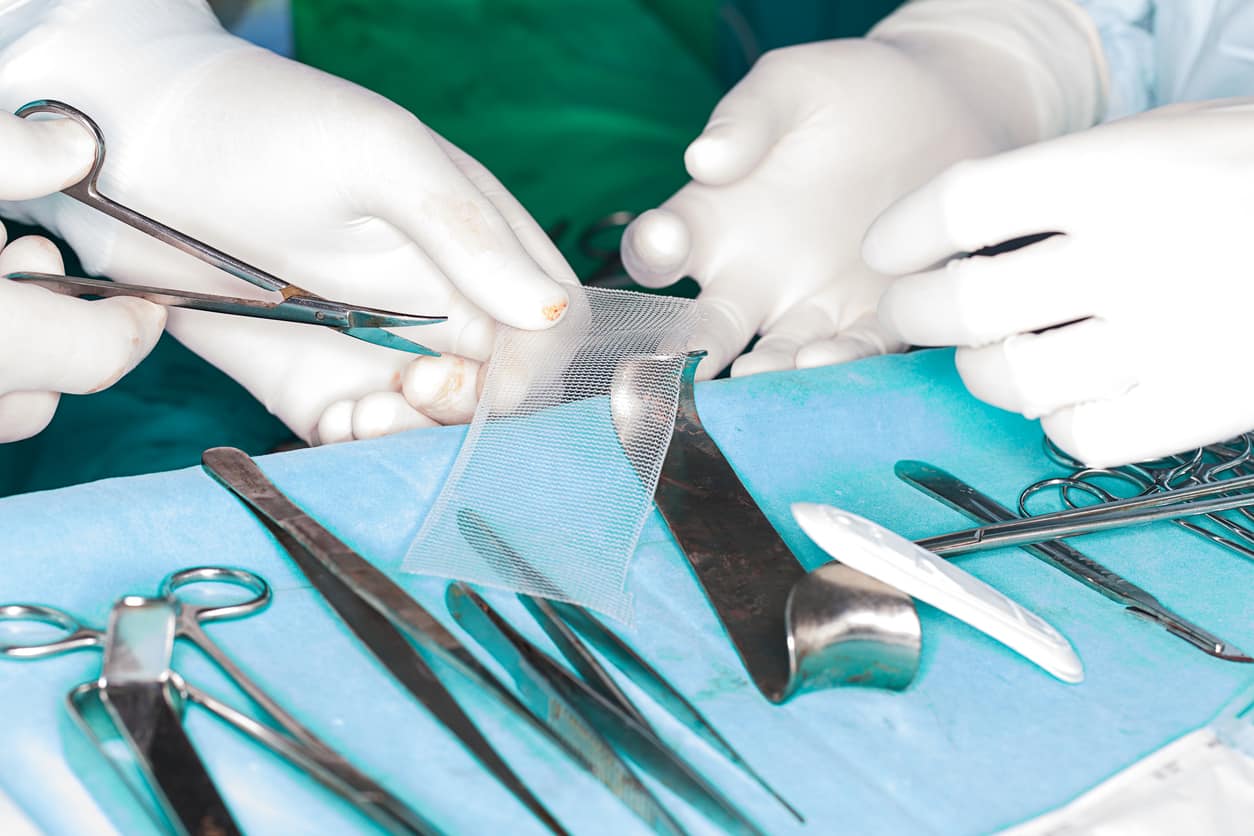
The next time you’re reading a newspaper or surfing the Web, keep your eyes peeled for articles heralding “the next great medical breakthrough!” Researchers are making new discoveries at an astonishing rate, so it probably won’t be long before you come across a report highlighting a new technique or medical device that will improve or save lives.
When you have a serious or debilitating condition, reading one of these types of stories relating to your particular illness can give you hope that you may not need to suffer much longer. Some years ago people with hernias who learned about promising new procedures using mesh-like materials to strengthen damaged tissue felt this hope. That hope was dashed for people who were given defective mesh products that ended up causing even more pain, complications and the need for additional surgeries.
Hernia Symptoms
Hernias – the displacement of organs and tissues from their usual cavities due to torn or weakened muscle walls that usually kept them in place – are fairly common. They can also be quite serious.
There are a variety of types of hernias, including inguinal, hiatal, femoral, umbilical, and incisional, but most affect the abdomen or groin area. Symptoms vary, but can include weakness, a burning sensation, or feeling pressure in the abdomen, groin, or scrotum; soft bulge or lump that can be more visible when you cough and may disappear when you lie down; pain from actions such as coughing, sneezing or having a bowel movement that cause you to strain your muscles; and the feeling that something has ruptured.
Hernias do not heal on their own and can worsen over time. Early detection often helps to improve outcomes and more serious hernias, particularly those which are irreducible (bulging tissue remains in ‘out’ position and may cut off blood flow to the tissue) generally require corrective surgery.
Hernia Mesh and Surgery
While surgeries are often successful, operations also come with a general risk of infection, chronic pain, adhesion of skin and obstruction, so getting them right the first time is quite important.
When surgeons began using mesh – derived from either animal tissue or a variety of synthetic materials – it was considered a breakthrough because these patches acted as bridges over weakened tissue and generally improved the odds of a successful first surgery. However, some of these products may have proved to be defective.
Side effects from hernia surgeries using these defective mesh products can worsen the usual complications that can occur from surgery and cause additional problems, such as:
- Mesh migration or shrinkage
- Perforation and fissures of the skin and organs (sometimes leading to blood poisoning and death)
- Chronic pain due to scarring and nerve damage
Mesh Recalls and Hernia Mesh Lawsuit
There have been major recalls related to popular hernia mesh products that have been found to endanger the health of patients.
In 2005, recalls of some types of the devices when medical reports and studies began revealing that a metal ring inside a mesh was failing and breaking, leading to side effects like bowel perforation and chronic enteric fistula. More recently, another mesh product was pulled from the market in 2016 after studies found the product failed more often compared to similar products.
What Can You Do?
If you have had a hernia operation where a mesh product was used, you should not worry unnecessarily; some patients with mesh products known to be defective will not experience side effects and complications.
However, if you have experienced symptoms such as pain, fever, nausea, vomiting, an inability to pass stools, a lump forming at the site of the surgery, you such seek medical attention immediately. Treatment options are often available and remedial surgeries may be necessary, though these are not always successful. Anyone who has been notified that a product implanted in them has been subject to a recall should be especially vigilant.
Hernias can be painful and serious. It’s extremely frustrating to know that improper testing of some hernia mesh products has prolonged or increased this pain and created more anxiety for some patients.
If you or a loved one has been affected by symptoms you believe may be the result of a hernia mesh product, you may be able to obtain compensation and damages for your pain and suffering. As a product liability lawyer, I would like to hear your story and welcome your questions.
Please contact hernia mesh lawyer Paul Miller at 416-646-3901 or by email at pmiller@hshlawyers.com.






